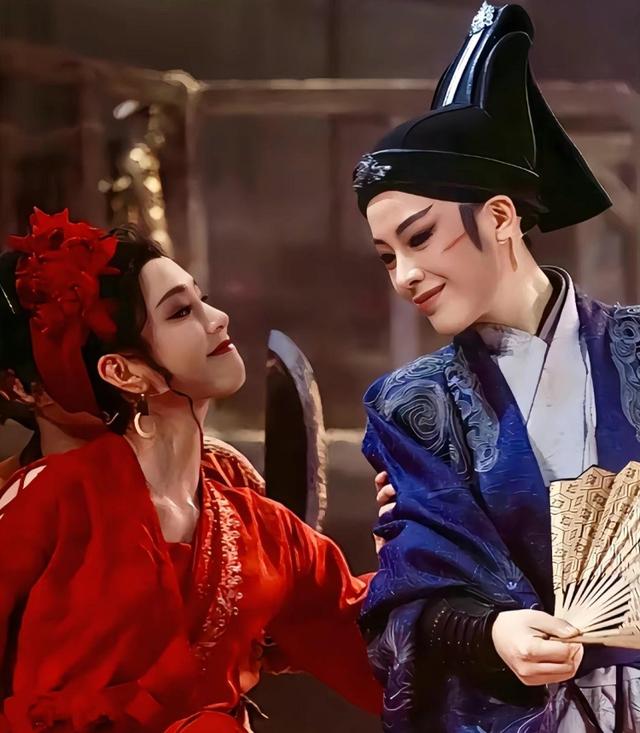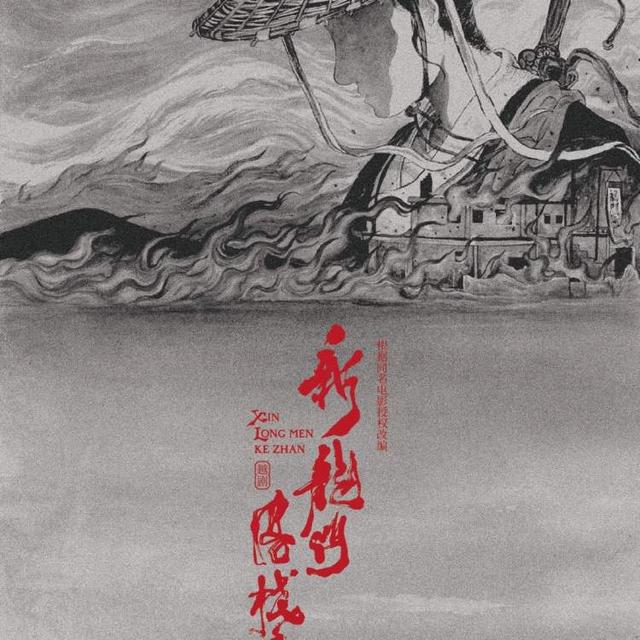Not surprisingly, the footage of "New Longmen Inn" starring Chen Lijun and Li Yunxiao didn’t appear on social media for long, and the two stars began to explode. From then on, because these actors will go to Hangzhou again in the future, there is probably one more reason, such as watching the new national style environmental Shaoxing opera "Xinlongmen Inn", and also watching Chen Lijun’s "Jade-faced Husband" Jia Ting and Li Yunxiao’s gold inlaid jade.
The play "Xinlongmen Inn" was produced by Zhejiang Xiaobaihua Yue Opera Troupe led by Mao Weitao, a famous Yue Opera performer. It became popular not long after it was staged, and it has been sold out so far. Unexpectedly, it is also reasonable. Surprisingly, the whole drama is full of young actors, acting the plots of the famous movies Longmen Inn and Xinlongmen Inn, and these two movies, one from the famous director Hu Jinquan, the other from Li Huimin and Tsui Hark, starring Brigitte Lin and Maggie Cheung, that is to say, it has lacked freshness in all aspects, and the previous one is an insurmountable peak, no.
Many people think that both the version of the Yue Opera "Xinlongmen Inn" and the images of Chen Lijun and Li Yunxiao are imitating the Baozang Song and Dance Troupe, but in fact, as long as you know a little about Yue Opera, it is not difficult to know that such a stage expression is derived from the old tradition of Yue Opera.

Poetry and Politics: Women’s Yue Opera in Shanghai’s Public Culture in the 20th Century, written by Jiang Jin, is a book I like very much. This book combs the history of Yue Opera, introduces important actors and plays, and examines the history of Yue Opera from the perspectives of gender, politics, the game between popular culture and elite culture.
Yue Opera was born in Shengzhou. From the beginning of "Xiaoge Class", it constantly improved its performance form and gained a firm foothold in Shanghai. At the same time, a fundamental change has taken place. It gradually changed from an all-male class to an all-female class. The reasons for becoming an all-female class are complicated. From the performance ability of men and women, the actresses at that time were more devoted and more capable, because it was very difficult for them to get out of the mountains and get a job opportunity, so most of them worked very hard. Moreover, the joys and sorrows in the story often linked with their own experiences and touched their hearts. They were particularly devoted to their performances, and they really laughed if they wanted to, and they really shed tears if they wanted to. This will more resonate with the audience.
From a cultural point of view, people in Jiangsu and Zhejiang provinces have a very rich secular life and developed secular culture, forming a kind of "emotional culture", which pays attention to personal life and true feelings. Yue opera is the concentrated expression of "love culture", and it is highly consistent on stage and off stage. While expressing feelings on the stage and telling love stories between the opposite sex, it is difficult to grasp the scale of male and female actors and actresses, and the actors are embarrassed, and the audience under the stage is also embarrassed. Only female CP will not make people uncomfortable at all. From the audience’s point of view, the audience of Yue Opera has gradually become dominated by women, further affecting its form.

In fact, the expression of this kind of "popular drama" and the core of "emotional culture" have been continued in Chinese film and television. From today’s perspective and referring to the drama tradition in Jiangnan area, it is not difficult to see that it is a cinematic "drama", which is full of "drama" from the core to the expression. It even gradually extended to a huge genre, shaping the creation and acceptance of later generations. Many ancient dolls, many Xian Xia, or stories like Dream of China may all fall under a big category: drama. The drama in the south of the Yangtze River is their not-so-distant source.
In the history of Yue Opera, the most important turning points and practices are all related to these factors. For example, the reform of Yue Opera in Yao Shuijuan and Yuan Xuefen, as well as their own theaters and schools for Yue Opera, all have a strong gender color, especially the enthusiasm for building theaters and schools, which can be understood from the perspective of women’s psychology-women like to build their own nests. There is also the interaction between Shaoxing opera actresses and female audiences, and even female audiences set up various fan organizations for idols, in this way to expand social interaction and exercise their social participation ability. This is actually very similar to today’s fan organizations.
A history of ups and downs of Yue Opera is actually a history of women, a romantic history belonging to women. Judging from this history, from "Xiaogeban" to the popularity of Chen Lijun and Li Yunxiao, some things in the deepest part of human nature have never changed, or even changed, they have become very slow. They always appear in the same or similar appearance in different times. This is a little reassuring.

关于作者